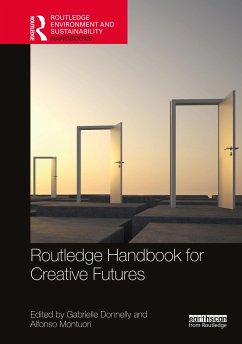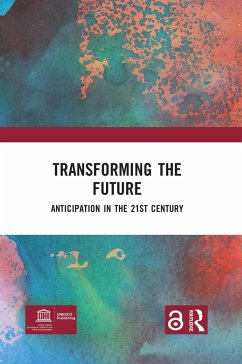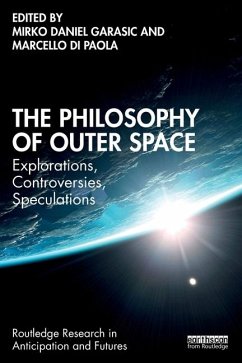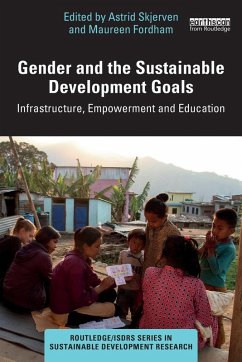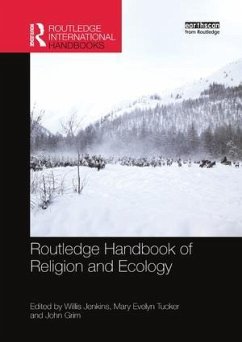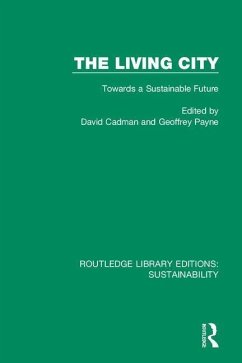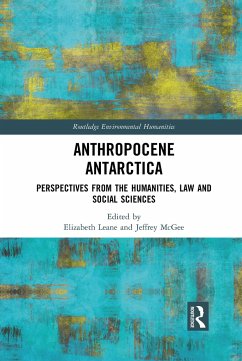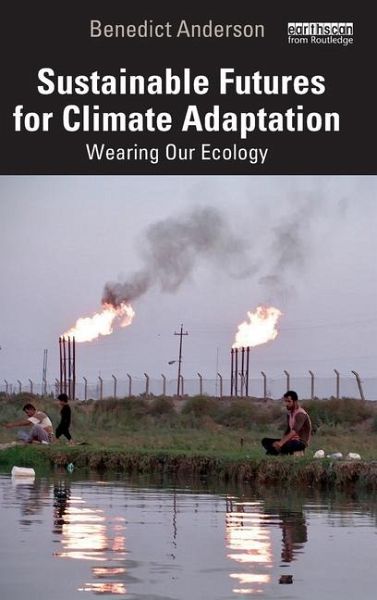
Sustainable Futures for Climate Adaptation
Wearing Our Ecology
Versandkostenfrei!
Versandfertig in 6-10 Tagen
144,99 €
inkl. MwSt.
Weitere Ausgaben:

PAYBACK Punkte
72 °P sammeln!
Considering sustainability as a flawed and restrictive term in practice, Sustainable Futures for Climate Adaptation argues that we must radically adapt humanity and reform society, cities, buildings, and our approach to migration in order to coexist in harmony with our natural environments.The book conceives an Earth-human coexistence where the world's regions are shared globally between all people, in contrast to a reality where we have lost touch with the natural world. It is this decoupling of humanity and nature that has brought us to the brink of climate disaster. In response, Benedict An...
Considering sustainability as a flawed and restrictive term in practice, Sustainable Futures for Climate Adaptation argues that we must radically adapt humanity and reform society, cities, buildings, and our approach to migration in order to coexist in harmony with our natural environments.
The book conceives an Earth-human coexistence where the world's regions are shared globally between all people, in contrast to a reality where we have lost touch with the natural world. It is this decoupling of humanity and nature that has brought us to the brink of climate disaster. In response, Benedict Anderson explores the concept of 'wearing our ecology', where human mobility is synchronized with the environment, merging people with landscapes, topographies, and geographies. Anderson argues that we need to create new migration routes for people moving between the Global South and North and establish flexible and adaptive living environments. Only by rethinking separations between urban and rural, resource extraction and consumption, racial prejudice and accessibility are we able to forge a closer partnership with nature to adapt to climate change and mitigate the worst of its effects.
Touching on themes of adaptive urban design, racial and gender segregation and inequality, and climate apocalypticism, this book will be valuable reading for researchers, scholars, and upper-level students in the fields of urban studies, migration studies, human geography, ecology, politics, and design.
The book conceives an Earth-human coexistence where the world's regions are shared globally between all people, in contrast to a reality where we have lost touch with the natural world. It is this decoupling of humanity and nature that has brought us to the brink of climate disaster. In response, Benedict Anderson explores the concept of 'wearing our ecology', where human mobility is synchronized with the environment, merging people with landscapes, topographies, and geographies. Anderson argues that we need to create new migration routes for people moving between the Global South and North and establish flexible and adaptive living environments. Only by rethinking separations between urban and rural, resource extraction and consumption, racial prejudice and accessibility are we able to forge a closer partnership with nature to adapt to climate change and mitigate the worst of its effects.
Touching on themes of adaptive urban design, racial and gender segregation and inequality, and climate apocalypticism, this book will be valuable reading for researchers, scholars, and upper-level students in the fields of urban studies, migration studies, human geography, ecology, politics, and design.




